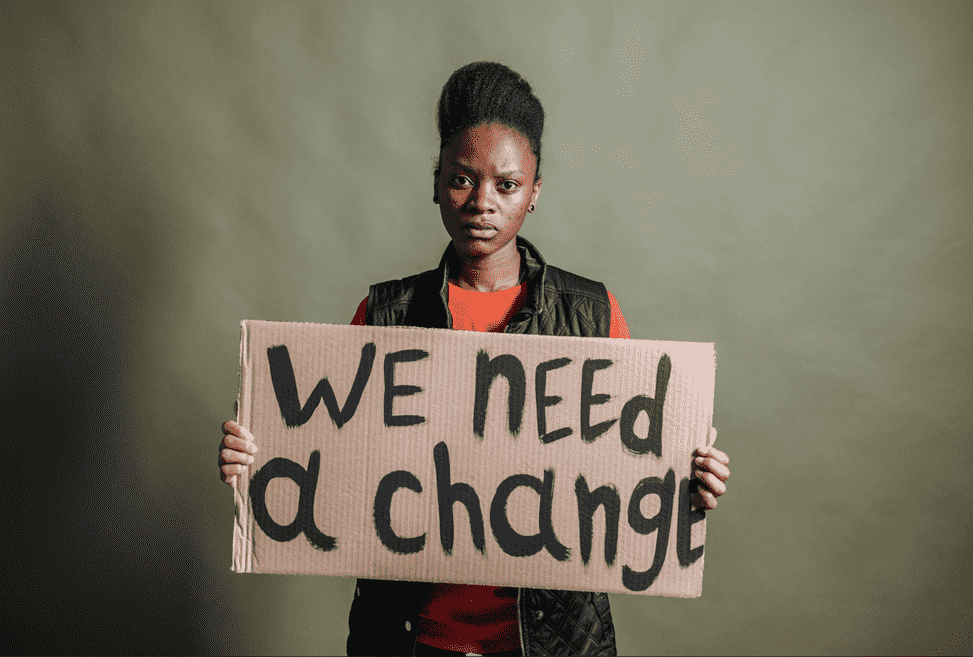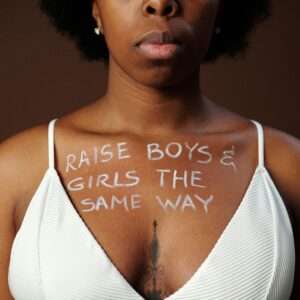Choosing Humanity Over Gender: A New Approach to Equality
Learn what it truly means to treat each other with humanity, free from gender labels
- Nambua Nteka
- December 15, 2024
- 10:34 pm

Rethinking Gender Equality: A Fairer Future for All
Have you ever noticed how the conversation around gender equality sometimes feels like a battle between men and women, rather than a push for fairness? Or how people champion equality—until it requires them to be fully responsible and rethink their privileges?
In this post, we’ll look at the common misconceptions surrounding gender equality. We’ll explore where they stem from, what keeps them alive, and what true equality actually looks like. More importantly, we’ll discuss how gender biases negatively impact everyone and why anyone seeking a fair and progressive world should embrace the principles of equality.
The Heated Argument: What Gender Equality Really Means
While issues like racism and colonialism resonate widely due to their universal impact, gender discrimination often lacks the same level of empathy.
There are many debates surrounding the gender equality movement which often leads to misunderstandings. The word “equality” may sound controversial, as some interpret it as negating the biological differences between sexes. Some see the movement as promoting male-female competition or division, which can indeed happen when the true essence of the conversation is lost.
A Personal Experience
Working in a male-dominated industry, I have faced moments that highlight these misconceptions. For example, when I ask for help with physically demanding tasks, some respond with remarks like, “But you advocate for equality—why can’t you do this yourself?” Such comments, while hurtful, reflect a deeper issue: a lack of understanding about what gender equality truly seeks to achieve.
Equality vs. Equity: What Are We Talking About?
Some people argue that the term should be “equity” rather than “equality“. To have meaningful discussion, we need to clarify these terms:
Equality: means ensuring everyone has the same value and access to rights and opportunities.
Equity: acknowledges individual differences and circumstances, aiming to implement actions and allocate resources so everyone can achieve the “same” or “equal” outcomes___ the end result there being “equality.”
Gender equality, then, is not about erasing biological differences but about creating a world where those differences do not limit a person’s potential, opportunities, or rights.
Every movement that exists was started by someone to address a particular problem. Regardless of whether you support the movement, it is essential to understand the origins of the idea of equality. Exploring why certain concepts emerged can help ease tensions and minimize conflicts.
Want More? Subscribe for Weekly Wisdom
Why Gender Equality Isn’t Just About Women
Historically, women have faced systemic barriers and were often denied basic rights such as voting, owning property, accessing education, or even choosing their life paths. This led to the emergence of the suffrage movement, which aimed to secure women’s right to vote in political matters. The struggle for gender equality has persisted to this day, addressing numerous challenges women continue to face in society.
While significant progress has been made, disparities persist. These gaps are not just about women—they affect all genders, including men and gender-diverse people.
For instance, rigid expectations harm men by discouraging emotional vulnerability, just as societal norms have limited women’s autonomy and opportunities. True gender equality seeks to address these issues for everyone, creating a world where humanity comes before gender.
Moving Beyond Misconceptions
I acknowledge that the movement has been hijacked by certain people with devious intentions, which is a common occurrence in any type of movement, whether it be religious, social, or cultural. While some are genuine about it, many hold selfish interests behind it. However, this does not negate the original intention of the initiative.
It’s important to recognize that movements for equality aren’t about erasing biological differences or claiming that everyone is the same. Instead, they aim to ensure fairness and justice for all. While some may misuse or misrepresent these movements, the core intent remains genuine: building a more equitable and harmonious society.
The Impact of Gender Norms: Reflecting on Our Own Biases
Understanding something is one thing, but actively supporting it is another—sometimes without even realizing it. Many of us carry biases related to gender, shaped by the societal structures we’ve lived with for years. These norms can often promote inequality without us fully recognizing them. So, how can we become more self-aware of these biases and the ways they limit us as humans?
To spark reflection, consider the following questions:
- If Your friend says, “Women need to be protected” or “Real men don’t cry”, how do you respond?
- When you think of a leader or CEO, what gender comes to mind first—and why?
- Who do you believe is more naturally suited for caregiving—men or women? Why?
- If a woman is assertive at work, how do you perceive her compared to a man behaving the same way?
- If a man cries in public, do you view it differently than if a woman does?
If someone doesn’t fit into traditional male or female roles, does that make you uncomfortable?
A Vision for the Future
Imagine a world where every person—regardless of gender—has the opportunity to reach their full potential, a world where respect, kindness, and justice guide our actions. This is not just a dream but a possibility if each of us takes responsibility for how we treat others and challenges our biases.
Summary
Gender inequality stems from cultural practices rather than biological differences. Gender biases place unnecessary limitations on our potential as human beings, dictating what we can do, how far we can go, and the manner in which we must operate. Instead of allowing our creativity to flourish and our intelligence to be fully utilized, these biases confine us to predefined roles. As a result, many people live their entire lives without ever realizing or expressing their full potential. Recognizing and dismantling these biases is essential for human progress.
Rather than focusing solely on women’s empowerment, gender equality should be about empowering all individuals—both men and women. The root of gender inequality lies in the suppression and domination of one gender over another. True equality can only be achieved when everyone is given the opportunity to unlock their potential, ensuring that no one is held back by outdated limitations.
The way forward
Whether or not you choose to support gender equality actively, understanding its purpose is crucial. Disagreements or differing perspectives do not make one side inherently right or wrong—they highlight the need for open dialogue. By striving to be better versions of ourselves and treating others with respect and compassion, we can move closer to a world where fairness is a natural way of life, and discussions about equality become unnecessary.
Let’s work together to create a future where humanity comes first.


